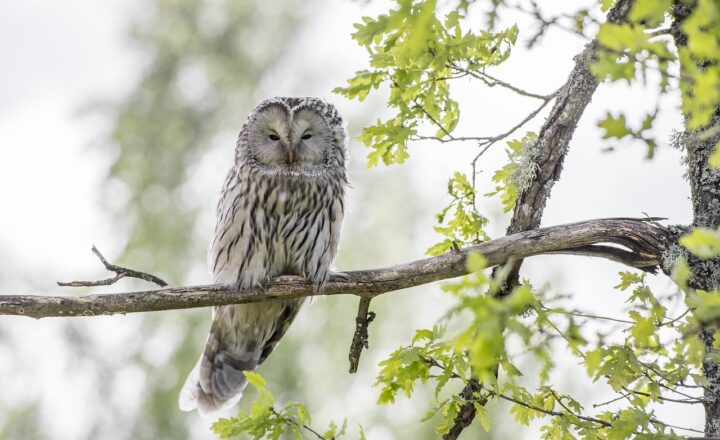The Wild Kingdom: Fascinating Facts About Animals You Never Knew
November 18, 2024

Animals have always captivated our imagination with their diverse behaviors, unique adaptations, and incredible abilities. In this article, we will delve into the wild kingdom and uncover some of the most fascinating facts about animals that you may have never known. Prepare to be amazed as we explore the extraordinary lives of various species from the depths of the ocean to the dense jungles of the world.
1. The Immortal Jellyfish
One of the most remarkable creatures in the ocean is the Turritopsis dohrnii, commonly known as the immortal jellyfish. This tiny jellyfish possesses the ability to revert to its juvenile form after reaching maturity, essentially allowing it to start its life cycle anew. This unique trait makes it biologically immortal, as it can theoretically repeat this cycle indefinitely.
Located primarily in the Mediterranean Sea and in warm waters around the world, the immortal jellyfish can withstand harsh conditions, thanks to its life cycle’s adaptability. Researchers are studying this creature’s regenerative properties that may provide insights into combating aging and developing regenerative medicine for humans.
2. Communication in Elephants
African elephants possess one of the most sophisticated communication systems among animals. They produce low-frequency sounds, known as infrasound, which can travel several kilometers through the ground and air, allowing them to communicate across vast distances. These sounds are crucial for social bonding, coordinating movement in herds, and alerting others to potential threats.
Additionally, elephants utilize body language and tactile communication to interact. Their trunks serve as versatile tools for both grasping objects and conveying emotions. Elephants have displayed signs of empathy and mourning, showcasing their deep social bonds, making them one of the most intelligent species on the planet.
3. The Color-changing Octopus
Imagine being able to change your color and texture to blend in completely with your surroundings! The octopus possesses chromatophores, specialized cells that allow it to change color at will. This remarkable ability enables the octopus to camouflage itself against predators, communicate with peers, and signal intentions.
Not only can octopuses change their appearance, but they can also alter the texture of their skin, mimicking the appearance of rocks, corals, or sand. This complex camouflage is essential for their survival in the wild. In addition to their dazzling visual abilities, octopuses are known for their intelligence, problem-solving skills, and dexterity, making them one of the most fascinating creatures in the ocean.
4. The Arctic Tern’s Incredible Migration
The Arctic Tern (Sterna paradisaea) is a remarkable bird known for having the longest migration of any animal on the planet. Each year, these small seabirds travel an astonishing 71,000 kilometers (44,000 miles) from their breeding grounds in the Arctic to their wintering grounds in the Antarctic and back again.
This migratory journey is not only long but also takes skills in navigation and endurance. Arctic Terns can face harsh weather conditions, predators, and food scarcity during their travels. Their migration is fueled by a rich diet of fish and understanding of global wind patterns, which they utilize to their advantage.
5. The Remarkable Life of a Seahorse
Seahorses are one of the most unique members of the animal kingdom, not just because of their horse-like appearance but also due to their intriguing reproductive process. In a rare twist among animal species, it is the male seahorse that becomes pregnant. The female deposits her eggs into a pouch on the male’s abdomen, where he fertilizes them and carries them until they hatch.
This unique form of reproduction is not only fascinating but also provides a safe environment for the developing embryos. Seahorses are also known for their remarkable swimming abilities, moving through the water by using a tiny dorsal fin on their backs, allowing them to hover while searching for food.
6. The Amazing Memory of Dolphins
Dolphins are known for their intelligence and complex social structures. Research indicates that these marine mammals have long-lasting memories and can recognize individuals even after years apart. Their ability to remember sounds, specific calls, and even social dynamics has made them the subject of extensive research in animal cognition.
Dolphins use echolocation, emitting sound waves to find food and navigate their underwater habitat. Their social behavior, often characterized by cooperative hunting and playful interactions, showcases their high level of consciousness and relational intelligence among peers.
7. The Unique Defense Mechanisms of the Pufferfish
Pufferfish are famous not just for their ability to inflate but also for their highly toxic nature. When threatened, they have the astonishing capability to consume water (or air) and swell up to several times their normal size. This inflated form makes them harder for predators to eat.
Moreover, pufferfish contain tetrodotoxin, a potent neurotoxin that can be lethal to predators, including humans. This toxin is found in their skin, liver, and reproductive organs. In some cultures, pufferfish are considered a delicacy, but proper preparation is essential to avoid poisoning, demonstrating the intricate balance between allure and danger in the animal kingdom.
8. The Speed of the Peregrine Falcon
The Peregrine Falcon holds the title as the fastest animal on the planet. When diving to catch its prey, the falcon can reach speeds of over 240 miles per hour (386 kilometers per hour). This unmatched speed is attributed to its aerodynamic body shape, acute vision, and powerful muscles that allow it to strike swiftly and accurately.
The Peregrine Falcon’s hunting technique involves a stoop (high-speed dive) from a great height, allowing it to surprise birds in mid-flight. This hunting prowess showcases not only its extraordinary speed but also its adaptation to hunting in diverse environments.
9. The Social Dynamics of Wolves
Wolves are social animals that live in family packs, which are typically composed of a breeding male and female, their offspring, and other non-breeding adults. These packs have a complex hierarchy, and wolves communicate through various vocalizations, body language, and scent marking to maintain social order within the group.
The pack structure aids in hunting, raising pups, and defending territory against rival packs. Wolves exhibit remarkable teamwork and strategy when hunting, showcasing their intellectual capabilities. Additionally, they have a strong bond with their pack members, and their loyalty is evident in the way they care for their young and support one another.
10. The Power of the Sloth
Despite being incredibly slow-moving, sloths are fascinating creatures adapted to life in the trees. Their slow pace is a crucial survival strategy, helping them evade predators like jaguars and eagles by blending into their environment.
Sloths are also notable for their unique digestion process. They have a slow metabolism and a specialized diet of leaves, which can be hard to digest. To aid digestion, sloths host symbiotic algae in their fur, which can provide additional nutrients and camouflage in their natural habitat.
Conclusion
The animal kingdom is rich with incredible species that display unique adaptations, extraordinary behaviors, and fascinating traits. From the immortal jellyfish’s regenerative abilities to the Peregrine Falcon’s astounding speed, there is always something new to learn about our world’s remarkable wildlife. By understanding and appreciating these facts, we can foster a greater respect for the animals that share our planet and work toward their conservation for generations to come.
Whether you’re an avid wildlife enthusiast or just curious about the natural world, remember that there’s always more to discover in the wild kingdom!








